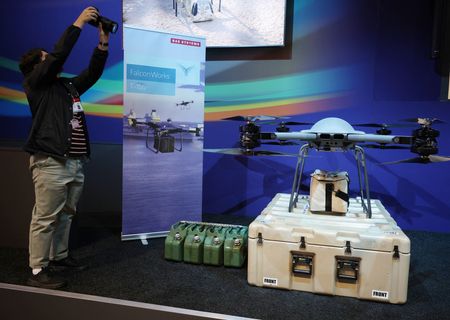By Anshuman Tripathy
(Reuters) -Aptiv forecast 2025 profit above analysts’ estimates on Thursday on the back of steady demand and cost measures, but the auto parts supplier expressed caution on potential tariffs that might impact supply chains and vehicle production.
U.S. President Donald Trump’s proposed tariffs on Canada, Mexico, and China add to industry headwinds owing to intertwined supply chains amongst the countries.
“The recent announcements regarding tariffs have created incremental uncertainty which could impact supply chains and vehicle production,” Aptiv CEO Kevin Clark said on a call with analysts.
However, the company’s 2025 forecast did not factor in tariff impacts as they seek further clarity.
The Dublin-based company expects its adjusted profit per share for 2025 to range from $7.00 to $7.60, exceeding analysts’ estimates of $6.92 per share, according to data compiled by LSEG.
Shares of the company were up more than 5% in morning trade.
Aptiv said its operating income increased in the fourth quarter year-on-year, as it saw benefits from improved performance and cost reductions which it had implemented last year.
Growing demand for software-driven vehicles and autonomous features like lane-keep assist have boosted orders for companies like Aptiv, which specializes in manufacturing parts and components for electrified vehicles.
“Aptiv remains our top pick in the auto supplier space, although we caution it is an industry facing considerable near-term headwinds from pressure on auto production levels from above-average inventory levels and possible tariffs,” CFRA Research analyst Garrett Nelson said.
The company’s net income fell to $268 million, or $1.14 per share, in the quarter ended Dec. 31, from $905 million, or $3.22 per share, a year earlier.
Analysts on average had expected the company to report $1.65 per share, according to data compiled by LSEG.
(Reporting by Nathan Gomes and Anshuman Tripathy in Bengaluru; Editing by Tasim Zahid and Maju Samuel)









